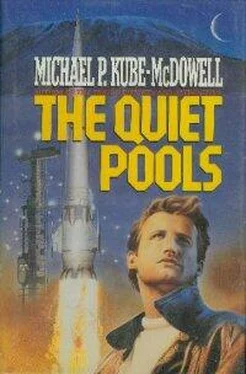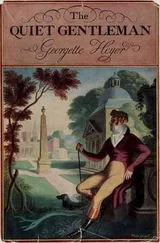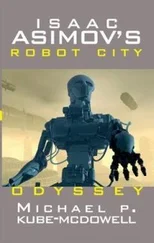When Mikhail was eight, Edward left the Peace Force for a job in the British electronics industry, and the family left Kaliningrad for Coventry, an hour from the Welsh border. Within a few months, they had begun taking weekend outings to explore the abbeys and castles of Wales—Cardiff and Caerphilly, Harlech and Valle Crucis. Drawing campaign maps and fighting imaginary battles in the back seat of the Leyland, Mikhail cemented his fascination with matters military.
And, in time, he learned a lesson that carried forward into adulthood, a lesson reinforced when a ruptured cerebral aneurysm stole his father’s soul, when a Nexus flathead’s gun spilled his mother’s blood on a Birmingham street. The lesson was hard. Dryke had never verbalized it, but he had internalized it: There is nothing that you cherish that cannot be taken from you, no treasure that cannot be lost —
No matter how grand, no matter how imposing, the fortresses and castles had all fallen. Each had been a grand edifice in its time, bustling with the discords of life. Now they were dead museums, containing but a faint echo of their former greatness. The halls were empty, the walls unmanned.
It had been the same fight in every world and every time— against weakness and neglect and corruption, against tactics and numbers and valor and luck. And it was still the same in the present day.
Fort Houston. Castle Kasigau. The walled city of Memphis . Outside were the forces of chaos, swarming, massing, undermining the walls, building engines of destruction. Dryke carried the shield of his liege as captain of the queen’s knights, looked out at the world through the dark, suspicious eyes of the besieged.
Except this time, there was a goal beyond mere preservation. A crusade was forming. If the walls held, if the attackers were repulsed, if the will did not weaken or the moment slip past, one day the gates would open, and the crusade would march out with flags flying to claim and conquer a new land.
Was it metaphor, or more? As he stood looking out from the high redoubt of Fort Jesus, Dryke could not say. He knew only that, for him as for the captain of the Portuguese guard, wondering what lay over the horizon and around the point, the waiting was the hardest part.
When he could, Dryke preferred to conduct conversations in person. The nature of his work meant that many of those conversations were sensitive; the nature of the world meant that none of those conversations could be guaranteed secure if any form of telecommunications was employed.
Split encryption, line-of-sight narrowcasting, dead-wiring, path-switching, all could be beaten. True, the message stream was like the Amazon in spring flood, and there was nothing easy about sieving the flow for one particular bit of electronic flotsam, much less decoding it.
But Dryke and Allied knew how, and it was only prudent to conclude that others knew as well. No one was saying, but the likely list included the intelligence arms of the Peace Force and several national governments, a smattering of the most technically inclined corporations, the best—and least principled—of the consulting and forecasting firms, a crime syndicate or two, and almost certainly Jeremiah’s Homeworld as well.
Dryke would go to Houston, or Munich, even halfway around the globe to Tokyo for the company. But Matthew Reid on Takara was sixteen hours and 36,000 klicks away. Dryke had been to the “City of Builders” only twice, to the partially completed Memphis but once.
But those early visits had been sufficient for him to grasp the security parameters and to measure Reid, whom Dryke inherited from his predecessor. The situation and the man were well suited to each other, and Dryke had left them undisturbed.
There had to be communication, coordination, and there was. No less than weekly, reports and directives and updates were ferried back and forth between Prainha and Takara by courier. Twice a year Reid came back for working vacations—briefings and marlin-fishing off Brazil’s Atlantic coast.
And at least once a month, on no fixed schedule, Dryke would call Reid and they would talk. The calls were nominally social, always informal, and quite probably monitored.
“Sounds like you folks had an amusing October,” Reid was saying. “A T-ship fragged, a couple of midnight fire-bombings, half a dozen road shipments hijacked, and that business with the Canadian environmental inspector—I’m almost jealous. All we had up here were a couple of half-baked sabotage attempts and an old-fashioned drunken family murder.”
“Just wait until we start sending you colonists a thousand at a time,” Dryke said, smiling. “You’ll get your share.”
“Now, wait a minute, I was promised angels and Eagle Scouts.”
“Nine hundred ninety-nine angels and one Javier Sala,” said Dryke. Sala was an Ur colonist who smuggled the components of a forty-kilogram cyclotol-aluminum bomb aboard the starship in his personal effects. His plan to destroy the ship before the eyes and cameras of the world was foiled three days before sailing when Ur’s security, monitoring internal communications, uncovered Sala’s ties to Spanish nationalists. Sala was quietly removed, and the incident never publicly revealed, but it remained a cautionary parable for Project insiders.
“Sporting odds, anyway,” Reid said lightly. “You keep the number of fanatics and martyrs down to a round dozen or so, and we’ll take it from there.”
“That’s big of you, Matt,” Dryke said. “Considering that every second warm body—man, dog, and grandmother—seems to be pointing for us down here. And every damn one of them can reach us if they try.”
“You need to recruit a militia. I hear the starheads gave a pretty good account of themselves in the Tokyo riot.”
“Yeah. This time,” Dryke said grimly. “It won’t be the last riot, though. And the next one will be worse, for both sides. Next time both sides’ll be armed.”
“I never thought I’d see the starheads rallying to our cause with steel,” Reid said, shaking his head. “That won a few hearts on Takara, I have to tell you.”
“And probably lost us a few million down here. It’s the old second-punch syndrome. Nobody saw it as five hundred screamers jumping fifty starheads and getting surprised. It played as Allied goons with stingers and blades carving up doe-eyed demonstrators.”
“The media have swung that far over?”
“It’s not what they said. It’s the pictures they have to show.”
“I don’t know why you folks just don’t pull out and move operations up here,” said Reid. “Ninety-five percent of the ship is ready for occupation. And you folks are about as popular as the Plague down there. You’ve got more friends up here, you know.”
“I wouldn’t be surprised if the company does exactly that for Knossos ,” said Dryke. “Can’t run Selection from up there, though.”
“Sasaki could move West to Prainha and Central and East to Kasigau. Let the urban centers go.”
“Maybe,” said Dryke. “Be kind of like turning your back to a wolf, though.”
“I suppose,” said Reid. “Listen, I’d like to get as many of my people as possible some release time before things get crazy up here. Do you have anything that’s going to need special attention programmed between now and the end of the year?”
Dryke considered. “You’ll start to get ship’s staff in two weeks,” he said. “You knew that. They’re finishing up the navigation and drive management software in Munich. That’s the next critical pacing item. It’ll be hand-carried up for installation sometime next month, six copies on three different flights.”
“I hear it’s about ready. Testing this week?”
Читать дальше

![Nick Cracknell - The Quiet Apocalypse [= Island Zero]](/books/28041/nick-cracknell-the-quiet-apocalypse-island-zero-thumb.webp)










